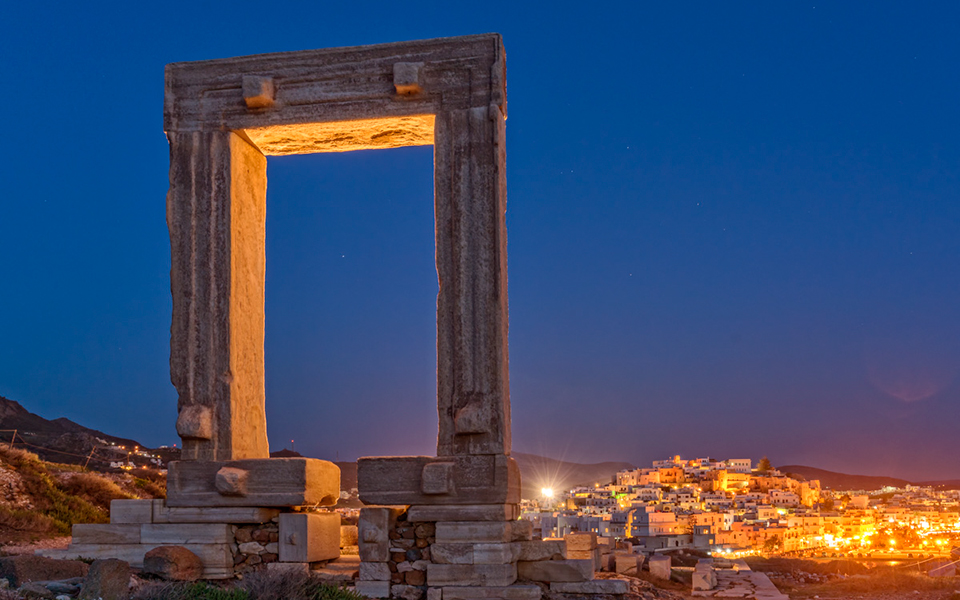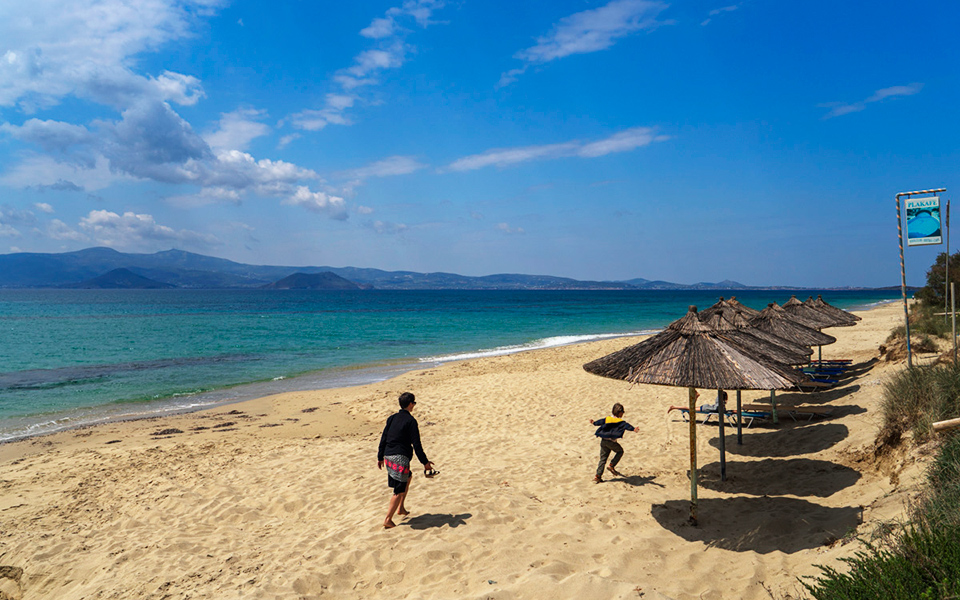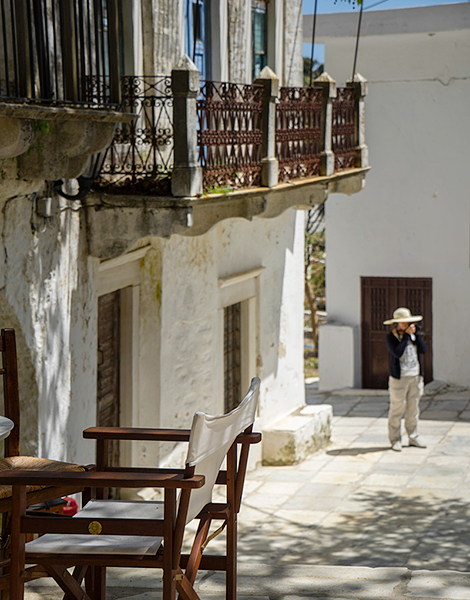Kampos: The Secret Life of Chios’s Citrus Estates
As its historic estates fade and...

The undisputed icon of the island, the Portara, an unfinished temple that was dedicated to Apollo
© Perikles Merakos
Naxos town (or Chora) is the capital and main harbor of the island. Fine architecture, great beaches and quaint villages are some of the reasons why it has become a much-loved destination, particularly for many families. Upon arrival to the island, you will be greeted by the 6m-high Portara built on a small islet. The famed Portara is the entryway to an unfinished temple that was dedicated to Apollo and which directly faces the island of Delos, Apollo’s mythical birthplace. The undisputed icon of the island, the Portara is where any Naxos tourist worth their sunset selfie will take an “I am here!” picture. On the south side you will find the Saint George Beach Resort that is home to some of the very best tavernas, cafes and novelty shops. The fine sand and shallow warm waters make it ideal for children to take a pleasant dip.
A popular pastime in the main town is to walk up to the Kastro, a castle built by the Venetians in 1207. Here you can take in broad views of the town and the sea and visit the five-story Archaeological Museum and the Venetian Museum, located in the Della Rocca Barozzi Tower and which hosts many a cultural event throughout the year. Within the inner walls of the Kastro you can also admire a 13th Century Catholic Cathedral and beautiful Venetian residences before strolling through the picturesque streets of the old quarter. A few kilometers outside of the main town, children can also enjoy educational visits to the Eggares Olive Press Museum, where one can learn about the entire process of olive oil production and its local history.

Plaka beach on the southwestern coast is a favorite destination for families seeking carefree seaside recreation.
© Perikles Merakos
Beyond the town, Naxos’s true appeal is its coastal bounty and beauty. Plaka beach on the southwestern coast is a favorite destination for families seeking carefree seaside recreation. There is a long, wide sandy strip where you can rent rooms and simply spend the day swimming and relaxing. Visitors are spoilt for choice with a generous selection of accommodation and restaurants serving international cuisine – so there’s something for every appetite.
Plaka connects with Aghia Anna, one of the island’s most cosmopolitan beaches. Here you will find calm waters, golden sand complete with sunbeds and umbrellas, an array of eateries and a quaint local church that offers an excellent view of the sunset.
If you’re a water sport enthusiast, head to Maraga for windsurfing and kitesurfing. Aqua Fun Park is also perfect for aquatic adventures beyond the beach. Located just outside the village of Stelida, it is equipped with various waterslides (suitable for both kids and adults), a pool bar, restaurant and features daily events. For those who want to enjoy the beach without actually swimming, visit the Naxos Horse Riding Club which offers scenic rides for all ages and levels of experience.

Apeiranthos, known as “the marble village”
© Perikles Merakos

You can choose between mountain villages or seaside strolls to explore the island.
© Perikles Merakos
Naxos also has a constellation of picturesque, mountainous villages that can be a refreshing alternative to the beach – perfect for those who want an early morning or late afternoon stroll. Apeiranthos, also known as “the marble village” is home to the 17th century Venetian Zevgoli tower built atop a massive rock, as well not one but four museums, specifically the Archaeological Museum, Visual Arts Museum, Geological Museum and Museum of Natural History. You can enjoy the sea views from the nearby fishing village of Moutsouna, once Apeiranthos’s harbor where local marble was once loaded onto ships for transport.
The Jesuit Monastery is also a sight worth discovering, located 2kms away from the village Melanes, accessible via a passable dirt track in an area known as Kalamitsia. This monastery, also known as the Jesuit Palace, is surrounded by low hills and olive trees. It was constructed in 1673 to house Jesuit monks and was built on the ruins of an older Venetian mansion. Although it is deserted today, one can still peer into the various rooms within the monastery walls.
As its historic estates fade and...
This spring, five majestic peaks across...
On the Cycladic island of Tinos,...
More and more Europeans retire to...